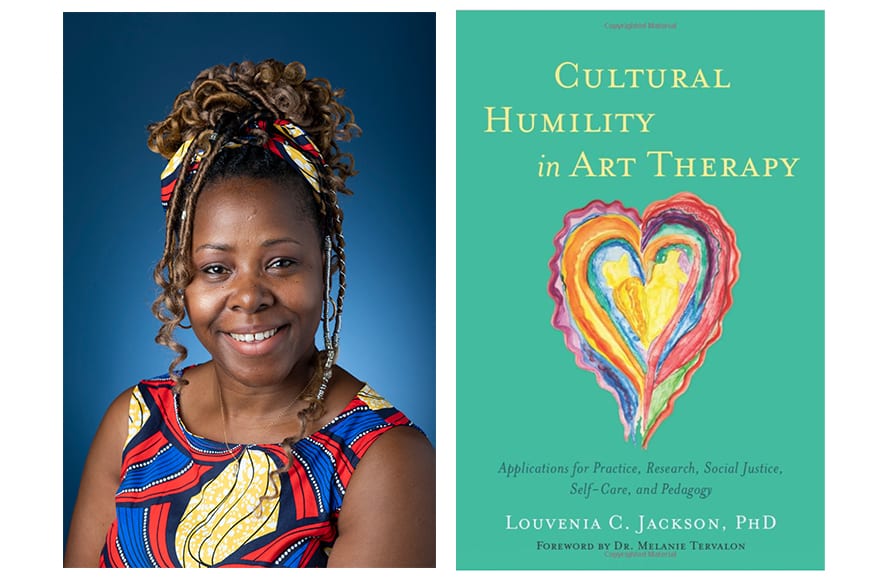
Assistant Professor Louvenia Jackson from the Department of Marital and Family Therapy (with Specialized Training in Art Therapy) was honored with one of the 2020 LMU Ascending Scholar Award. This award was created in 2019 by the Provost Office to recognize excellence and promise in faculty whose scholarship or creative activity exemplifies LMU’s mission and standard of excellence.
Jackson was honored for her progress in scholarly and creative activity, including her 2020 publication “Cultural Humility in Art Therapy: The balance of creativity, introspection, and advocacy”, which for her represents the capstone of 10 years of scholarship efforts, clinical leadership, research, and original creative work. In describing her process, Jackson said, “It has been a challenging and rewarding culmination of many years of thoughtful inquiry and lived experience in the principles of cultural humility, both delivering my passion and advocacy for diversity, equity and inclusion in art therapy pedagogy, training, research, and practice.”
In the publication, Jackson offers ways to incorporate cultural humility in art therapy research, practice, community-based engagement, social justice, and pedagogy, as well as an introduction to cultural humility along with ways to effectively use it as a tool for introspection and self-care. Jackson describes the book as an introduction to cultural humility and its practical, philosophical implementation and implications in art therapy. It describes cultural humility and how to apply it to art therapy using practical guidance.
“The principles of cultural humility, which address the power differential and encourages the individual and institution to examine privilege within social constructs, designs a prospective that could shift the etic practice of therapy,” said Jackson. “Often art therapists externalize and project through their engagement with the client and the art, cultural humility emphasizes self-reflection and knowing ones self in order to appropriately interact with the client while being mindful of your bias, assumptions and beliefs.”
For Jackson, this work is so needed because of the homogenous demographic of art therapists and the implications that has on the diverse populations that art therapists serve. The book not only addresses and illuminates the need for multicultural practice, but also offer a tool and philosophy for actual implementations. According to Jackson, “This book is needed in today’s divisive climate, where many are seeking ways to move toward social justice and equity. Cultural humility offers a way of acknowledging our biases; assumptions and belief while understanding the impact those aspects have on our practice of art therapy.”
More information here.



